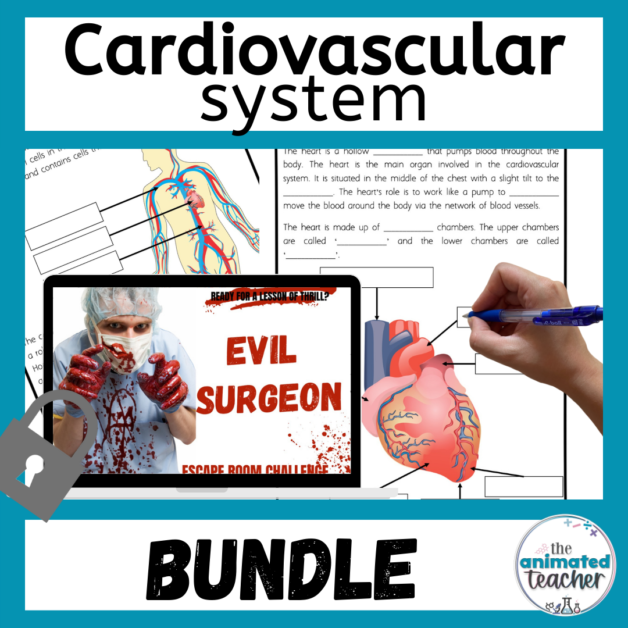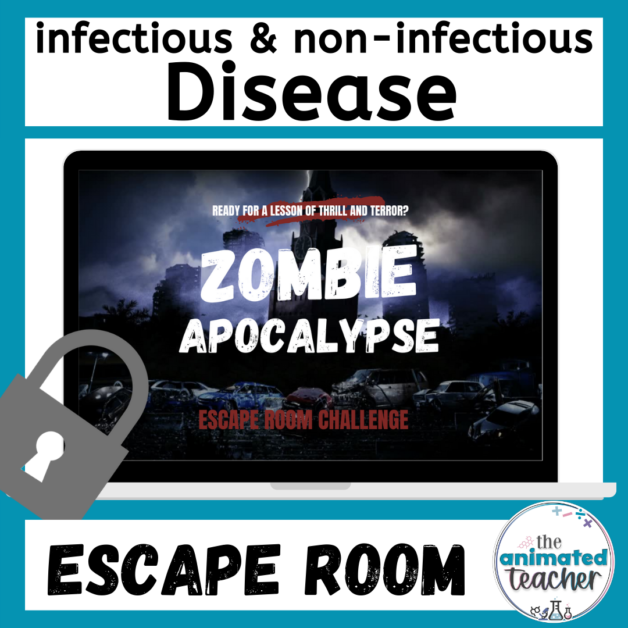How to start an inspiring teacher blog in 2024
Are you a passionate educator eager to share your insights and inspirations with fellow teachers and students worldwide? Starting a teacher blog can be an excellent platform to amplify your voice, share your experiences, and inspire others in the teaching community.
I started my teacher blog back in 2021 because I wanted to have a wider reach for the teachers I could help and support. I am very passionate about supporting new teachers in their teacher journey, and creating resources that save teachers time and effort so they can find a manageable work/life balance.
After starting the blog I’ve found it to be immensely helpful for my own professional development. It helps me to be reflective and thoughtful about my practice and I feel driven to try new things. If you are an experienced teacher, or even a new teacher who wants to document their journey in teaching, then creating a teacher blog may be for you!

Disclaimer: This blog post, ’how to start an inspiring teacher blog in 2024’, may contain affiliate links. If you purchase something from these links I may get a small commission to help support this blog (with no extra cost to you). Read full disclaimer here.
Education blogs are a great way to impart knowledge and expertise while forming a sense of community and helping a fellow educator.
No matter how many years of experience you have, hearing your experiences and learnings from being a classroom teacher or leader could benefit many. Writing a teacher blog is not just for english teachers who like writing. It is for anyone who is passionate about teaching and likes to be reflective in their practice.
Misconceptions about starting an educational blog
Before I get into how to start a teacher blog, I want to cover a few misconceptions that I had when I first started. Hopefully you find these encouraging as you start your teacher blogging journey.
1. You have to be savvy with the use of technology: While some technical knowledge can be helpful, you don’t need to be a coding guru to start a teacher blog. With user-friendly platforms like WordPress, Blogger, or Squarespace, you can create a professional-looking blog without any coding skills. These platforms offer templates and intuitive interfaces that make the process straightforward for beginners.
2. It’s Too Late to Start a Blog: With millions of blogs already online, some people believe that it’s too late to start a new one. However, the internet is vast, and there is always room for new voices and perspectives. Plus, niche blogging allows you to target specific audiences and carve out your own space in the blogging world. As long as you have unique insights, valuable content, and a genuine passion for your topic, there’s still plenty of opportunity to succeed with your own teacher blog.
3. You Need to Be an Expert: While expertise certainly helps, you don’t need to be an expert in your niche to start a blog. Many successful bloggers are self-taught enthusiasts who document their learning journey and share their experiences with their audience. As long as you’re passionate about your topic and willing to put in the effort to learn and grow, you can create valuable content that resonates with your readers.
4. You Need to Post Every Day: Consistency is essential for growing your blog, but you don’t necessarily need to post every day. Quality content is more important than quantity. It’s better to focus on creating well-researched, engaging posts that provide value to your audience rather than churning out content daily. Find a posting schedule that works for you and stick to it consistently.
5. You should wait for the right time: Let’s be real – as a teacher, there will never be a ‘perfect time’ to start a teacher blog. You can always fill your time with more lesson planning, grading and creating of activities. If you want to start a blog then you’re in the right place – just start! You only need to commit to the level you want to commit. That might be writing one post a month. It could be one a week. You do what works for you!
How to start a teacher blog in 10 steps
If you want to start an educational blog but you don’t know where to start, these 10 steps will talk you through the process of how to get started.
1. Define Your Niche: Before diving in, pinpoint your niche within the teaching realm. Are you passionate about STEM education, early childhood development, special education, or perhaps innovative teaching methods? Identifying your niche will help you tailor your content and attract a specific audience. Below are 30 niches for teacher educators to start a teacher blog in:
- Early Childhood Education: Focus on teaching strategies, activities, and resources tailored to young children.
- STEM Education: Explore innovative approaches to teaching science, technology, engineering, and mathematics.
- Special Education: Provide resources, tips, and strategies for teaching students with special needs.
- Classroom Management: Share techniques and best practices for maintaining a positive and productive classroom environment.
- Literacy Instruction: Offer insights into effective methods for teaching reading, writing, and literacy skills.
- Educational Technology: Discuss the integration of technology tools and resources into the classroom.
- Project-Based Learning: Explore project-based learning approaches and share project ideas and resources.
- Differentiated Instruction: Provide strategies for catering to diverse learning needs within the classroom.
- Inclusive Education: Advocate for inclusive practices and share resources for creating inclusive classrooms.
- Teacher Well-being: Focus on teacher self-care, mental health, and well-being strategies.
- Parent-Teacher Collaboration: Offer tips and resources for fostering positive relationships between teachers and parents.
- Gifted Education: Provide resources and strategies for meeting the needs of gifted and talented students.
- English Language Learners (ELL): Share tips and strategies for supporting students who are learning English as a second language.
- Global Education: Explore global perspectives in education and share resources for fostering global competence.
- Arts Education: Focus on integrating visual arts, music, theater, and dance into the curriculum.
- Outdoor Education: Advocate for outdoor learning experiences and share ideas for incorporating nature into teaching.
- Social-Emotional Learning (SEL): Provide resources and activities for promoting social and emotional skills development.
- Assessment and Evaluation: Discuss best practices for assessment, grading, and evaluation in education.
- Teacher Professional Development: Offer resources and tips for ongoing teacher growth and development.
- Culturally Responsive Teaching: Explore strategies for integrating students’ cultural backgrounds into teaching practices.
- Mindfulness in Education: Advocate for mindfulness practices in schools and share strategies for incorporating mindfulness into the classroom.
- 21st Century Skills: Focus on teaching skills such as critical thinking, communication, collaboration, and creativity.
- Outdoor and Environmental Education: Share ideas for incorporating outdoor and environmental education into the curriculum.
- Virtual and Remote Teaching: Provide tips and strategies for teaching in virtual or remote learning environments.
- Educational Leadership: Offer insights into educational leadership practices, school administration, and professional growth.
- Character Education: Focus on teaching character traits such as responsibility, respect, and empathy.
- Health and Physical Education: Provide resources and activities for promoting health and physical fitness in schools.
- Multicultural Education: Explore strategies for promoting diversity and inclusion in the classroom.
- School Leaders: Discuss approaches to leading in school environments.
- Educational Book Reviews: Write book reviews of educational books to help fellow educators decide which ones are worth reading for their own professional development.
2. Craft Your Unique Voice: What sets your blog apart from the rest? Define your unique voice and style. Whether it’s your humor, personal anecdotes, or deep insights, infuse your personality into your writing to captivate your readers.
3. Choose a Platform: Decide on a blogging platform that suits your needs and technical abilities. Popular options include WordPress, Blogger, or Squarespace. Consider factors like customization options, ease of use, and cost before making your choice. As part of this, you may also like to secure your unique domain name that will be part of your brand.
4. Create Compelling Content: Content is king! Brainstorm teacher blog post ideas that resonate with your target audience. Share lesson plans, teaching strategies, classroom management tips, personal reflections, or educational resources. Aim to provide value and inspiration with each post.
5. Establish a Consistent Schedule: Consistency is key to building a loyal readership. Determine a posting schedule that works for you, whether it’s once a week or bi-monthly, and stick to it. Consistent updates keep your audience engaged and coming back for more.
6. Optimize for SEO: Increase your blog’s visibility by optimizing it for search engines. Research relevant keywords related to education and incorporate them naturally into your blog posts, titles, and meta descriptions. This helps improve your chances of ranking higher in search engine results pages.
I wish I started with this instead of waiting until I was more established.
RankIQ is an absolute gamechanger for bloggers in terms of optimizing SEO and finding keywords which your blog will actually rank for. It has made such a difference for my organic blog traffic and I wish I got onto it sooner!
7. Engage with Your Audience: Foster a sense of community by actively engaging with your audience. Respond to comments, ask for feedback, and encourage discussions. Building relationships with your readers not only boosts loyalty but also provides valuable insights into their needs and preferences.
8. Utilize Visuals: Capture your readers’ attention with visually appealing content. Incorporate images, infographics, videos, and charts to complement your written posts. Visuals not only enhance the aesthetic appeal of your teacher blog but also aid in conveying complex ideas more effectively.
9. Promote Your Teacher Blog: Spread the word about your teacher blog through various channels. Share your posts on social media platforms like Twitter, Facebook group, and LinkedIn. Collaborate with other educators, guest blog on relevant sites, and participate in online communities to increase your blog’s reach. Connect with other teacher bloggers and participate in networks.
10. Track Your Progress: Monitor your teacher blog performance and track key metrics such as website traffic, engagement, and subscriber growth. Analyze what’s working well and what can be improved upon. Use analytics tools like Google Analytics to gain valuable insights and refine your blogging strategy accordingly.
Conclusion
Great teachers have so much wisdom and expertise to share with their fellow educators. Teaching blogs are a great way to impart that knowledge and support other teachers in their teaching journey.
So are you going to start your own teacher blog?

Katrina is a multi-award winning educator from Sydney, Australia who specialises in creating resources that support teachers and engage students.
See the quality and browse her best selling resources below on either The Animated Teacher website or on Teachers Pay Teachers:







